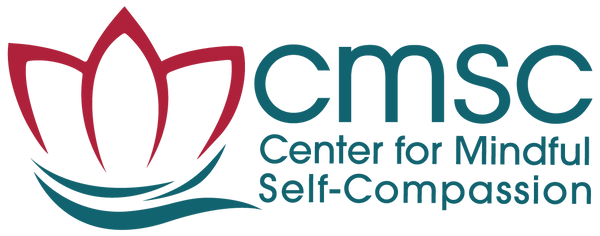
Workshop
November 14, Deepening Inquiry Through Embodied Presence Workshop with Steve Hickman
November 14, Deepening Inquiry Through Embodied Presence Workshop with Steve Hickman
Couldn't load pickup availability
Deepening Inquiry Through Embodied Presence Workshop with Steve Hickman
Thursday, November 14, 2024, 8 am - 11 am PT
Of all the elements of teaching Mindful Self-Compassion, the process of inquiry is by far the most challenging and perhaps misunderstood. This 3-hour workshop led by former CMSC Executive Director Steve Hickman is intended for MSC teachers at all levels. Participants will begin to explore some of the more subtle and overlooked aspects of engaging in inquiry. Focused on the premise that inquiry is indeed a practice (like our own personal meditation practice), participants will engage in self-exploration of the impact of their own inner work on the outer work of inquiry, and provide opportunities for sharing, practice teaching and discussion.
Participants will learn:
- Explore embodied inquiry as a meditative practice
- Refine MSC teaching intentions and ways of inquiring
- Deepen the capacity to teach without talking and guide without leading
- Discover how mudita (sympathetic joy) can lighten the inquiry process
About Steve Hickman:
Dr. Steven Hickman is a longtime teacher of mindfulness and self-compassion and a trainer of teachers as well. He is the former Executive Director of CMSC and co-developer of the MSC teacher training. Steve is a Clinical Psychologist and Retired Associate Clinical Professor in the University of California at San Diego School of Medicine, as well as the Founding Director of the UC San Diego Center for Mindfulness. Steve is now retired and lives on the coast of Oregon with his wife and two beloved Corgis.
Share

Benefits of Mindful Self-Compassion
-
What is Self-Compassion?
Self-compassion involves responding in the same supportive and understanding way you would with a good friend when you have a difficult time, fail, or notice something you don’t like about yourself. There are three elements which comprise self-compassion: Self-kindness vs. self-judgment, common humanity vs. isolation, and mindfulness vs. over-identification.
-
Proven Benefits
In daily life, self-compassion involves noticing when we’re having a hard time, and rather than judging and criticizing ourselves, we respond to our pain with care and kindness, just as we would a dear friend. There’s now an impressive and growing body of research demonstrating that relating to ourselves in a kind, friendly manner is essential for emotional wellbeing. And though self-compassion is not often the first response for many of us during moments of personal struggle, this skill can be trained, even for those of us who did not learn it as children.
-
Access to Materials & Recording
Twelve hours prior to the start of the workshop you will receive access to the content, additional materials and the the zoom link for the live session. The workshop will also be recorded and you will have access for 90 days if you want to review it at your convenience.
FAQs & Important Information
If I'm unable to attend, can I request a refund?
Our entire Refund Policy is located here: https://centerformsc.org/cmsc-policies/
We encourage you to review the Refund Policy in its entirety. Below is important information that we would like you to be aware of before choosing to make a financial commitment with us.
All refund requests must be made via the refund request form at the link above.
Refunds must meet specific terms of eligibility to include the reason for requesting a refund.
Our Refund Policy (at the link above) includes details on when we are able and are not able to issue a full refund.
All refund request forms are reviewed by a small team of our staff. We ask for your patience and understanding when requesting a refund.
If you have any questions after reviewing our Refund Policy, feel free to reach out to us at hello@centerformsc.org
Important Info: Mindful Self-Compassion is not a substitute for Therapy
Our programs are designed to teach participants the tools needed to develop and cultivate a mindfulness and self-compassion practice.
It is not a substitute for mental health care, personal therapy or medical treatment.
Personal safety and emotional wellbeing are the foundation of self-compassion training and you are primarily responsible for your own safety.
Teachers and facilitators are not expected or able to provide medical and/or psychological care. Course experiences may bring up challenging memories or feelings.
If you have a history with a serious mental health condition or other concerns you think may impact your ability to take this course, please contact CMSC or your healthcare professional to determine if this course is right for you. Your personal contact information may be used in the event the teacher or facilitator reasonably determines a need to call emergency services on your behalf.
Important Info: Productive Participation in Courses & Workshops
Participation is at the discretion of the teachers and facilitators at all times.
If, in the opinion of the teachers and facilitators, you are unable to participate productively and appropriately in the course or workshop you have registered for, you may be asked to discontinue.
Decisions of removal are to ensure CMSC provides the safest space possible for our participants and teachers. Please see our refund policy regarding necessary participant removal.

